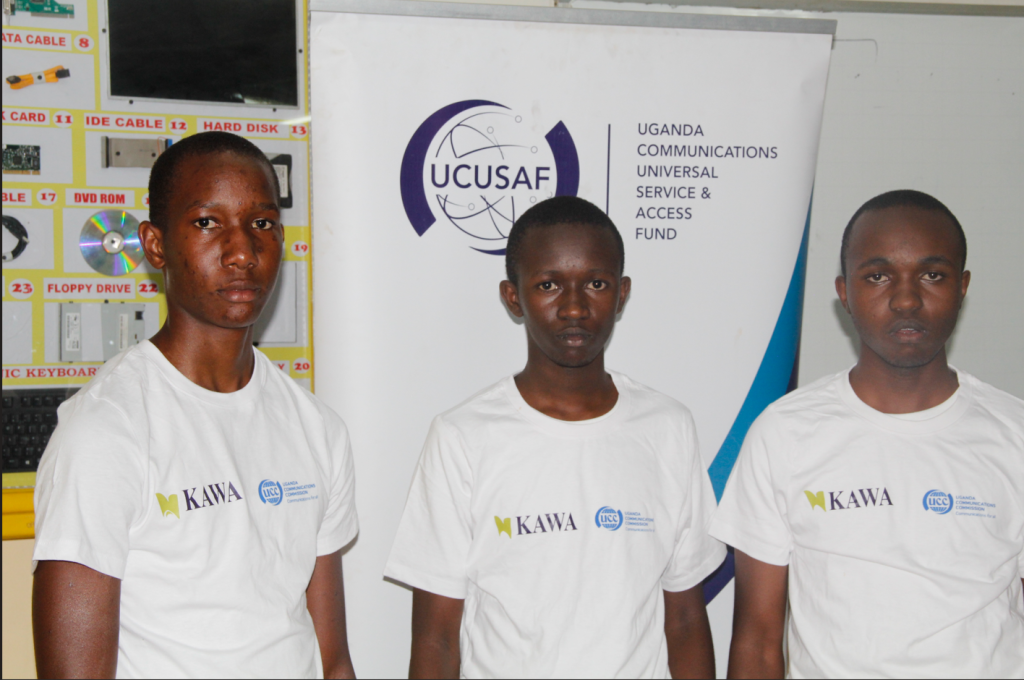
Uganda’s education system stands at a crossroads. While significant progress has been made in improving access to education, the persistent focus on rote memorization, exam-driven teaching, and outdated methods has hindered the development of critical thinking and problem-solving skills in learners. Recognizing these challenges, KAWA, in collaboration with the Uganda Communications Commission (UCC) and the Ministry of Education and Sports, is spearheading transformative efforts to modernize teaching and learning across the country.
This article explores these initiatives, highlights their impact, and outlines practical steps for teachers to embrace innovation in the classroom.
The Current State of Education in Uganda
Despite efforts to reform education, many institutions still rely on traditional methods that prioritize cramming over comprehension. Research shows that Uganda’s primary schools, Advanced Level institutions, and universities are heavily focused on reproducing information from memory, neglecting skills like critical thinking, creativity, and analysis.
However, progress is evident at the lower secondary level, thanks to the newly implemented Competency-Based Curriculum by the National Curriculum Development Centre (NCDC). In the 2024 Senior Four final examinations, questions emphasized critical thinking, innovation, and analysis, moving away from mere recall of facts. This shift represents a beacon of hope for the future of education in Uganda, provided that teachers consistently adopt and sustain modern teaching and assessment practices.

Collaborative Efforts to Transform Education
Formation of ICT Clubs
KAWA, in partnership with UCC and the Ministry of Education, has established ICT Clubs in 283 secondary schools across Uganda. These clubs aim to provide both teachers and learners with hands-on experience in using technology to enhance education. ICT clubs encourage collaborative learning, problem-solving, and exploration of digital tools, preparing students for a tech-driven world.
Competency-Based Curriculum (CBC)
The NCDC’s Competency-Based Curriculum is a significant step toward aligning education with 21st-century needs. It emphasizes skills development, critical thinking, and creativity, ensuring learners can apply knowledge to real-world situations. Teachers are being trained to implement this curriculum effectively, with a focus on practical and innovative learning activities.
EdTech Training for Teachers
KAWA and its partners are committed to equipping teachers with the skills to integrate technology into their teaching. Training workshops, mentorship programs, and access to digital resources are helping educators transition from traditional methods to modern, student-centered approaches.
Challenges in Education
Despite these efforts, many challenges persist:
- Traditional Teaching Methods
In primary schools, Advanced Level institutions, and universities, the focus remains on memorization and regurgitation. - The lack of emphasis on critical thinking and creativity continues to hinder learners’ ability to innovate and solve real-world problems.
- Limited ICT Integration
Although ICT clubs are gaining traction, many schools still lack the infrastructure and resources needed for widespread technology adoption. According to the Uganda Bureau of Statistics (UBOS), only 15% of teachers regularly use ICT in their lessons. - Overcrowded Classrooms
With pupil-to-teacher ratios averaging 46:1, especially in public schools, personalized learning and meaningful teacher-student interaction remain difficult to achieve. - Exam-Driven Learning
The education system’s obsession with exam results continues to prioritize passing tests over understanding concepts. Students are assessed based on their ability to recall facts rather than their capacity to think critically or apply knowledge.
Opportunities for Transformation
- Expanding ICT Clubs
Building on the success of the 283 secondary schools with ICT clubs, efforts should focus on expanding these programs to primary schools and universities. This would ensure continuity in digital literacy and foster a culture of innovation across all levels of education. - Integrating EdTech in Classrooms
Tools like Google Workspace, Microsoft Teams, and Moodle can revolutionize teaching by promoting collaboration, creativity, and personalized learning. Teachers should be trained to use these tools effectively, even in resource-constrained environments. - Adopting Competency-Based Assessments
Assessments should focus on evaluating critical thinking, problem-solving, and creativity. Teachers can use project-based learning and formative assessments to measure students’ understanding and skills. - Teacher Development Programs
Continuous professional development for teachers is essential. KAWA and its partners are working to ensure that educators are well-equipped to adopt modern teaching practices and integrate technology into their lessons.
The Role of Teachers in Shaping the Future
Teachers are at the heart of educational transformation. By shifting from traditional, teacher-centered methods to approaches that encourage active learning, creativity, and collaboration, educators can prepare learners to navigate the challenges of the modern world. For example, instead of focusing solely on memorizing historical events, teachers can encourage students to analyze their causes and consequences, fostering deeper understanding and critical thinking.
Hope for the Future
The recent changes in the Senior Four exams demonstrate that Uganda’s education system is capable of adapting to modern demands. If teachers continue to teach and assess learners in ways that promote critical thinking and innovation, the country can build a generation of problem-solvers and innovators. However, this momentum must extend to primary schools, Advanced Level institutions, and universities, where traditional methods still dominate.
KAWA’s Commitment
KAWA, in collaboration with Edify Uganda, UCC and the Ministry of Education and Sports, is dedicated to supporting teachers and school leaders through capacity-building programs and EdTech initiatives. By scaling up successful programs like ICT clubs and aligning efforts with the NCDC’s Competency-Based Curriculum, KAWA is helping to create a brighter future for education in Uganda.
With collective action, we can transform Uganda’s education system into one that fosters creativity, critical thinking, and innovation, equipping learners to change the world for the better.

